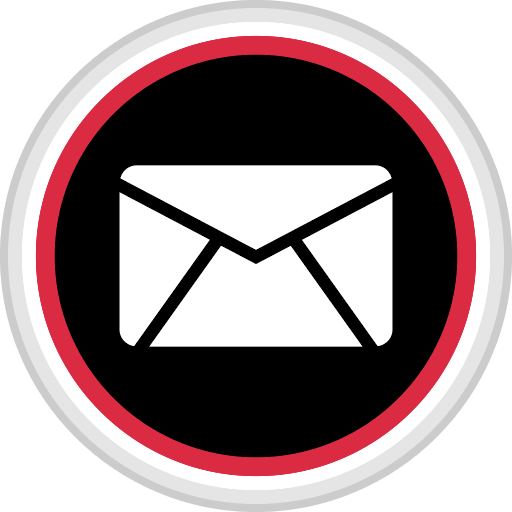Description

Emma by Marigold

GroupMail
Comprehensive Overview: Emma by Marigold vs GroupMail
As of my last update in October 2023, Emma by Marigold and GroupMail are both email marketing solutions, but they cater to slightly different needs and markets. Let’s break down your request into the specified sections:
a) Primary Functions and Target Markets
Emma by Marigold
Primary Functions:
- Email Campaign Creation: Provides customizable templates for creating professional-looking email campaigns.
- Audience Segmentation: Allows for detailed segmentation of email lists to tailor content to different groups.
- Automation Features: Includes workflow automation tools to nurture leads and engage customers efficiently.
- Analytics and Reporting: Offers comprehensive analytical tools to track campaign performance and subscriber behavior.
Target Markets:
- Small to Medium Businesses (SMBs): Particularly those that require robust design and personalization options.
- Non-Profits: Many non-profits use Emma for its user-friendly interface and powerful tools.
- Marketing Agencies: Agencies appreciate Emma’s flexibility and ability to handle multiple campaigns for various clients.
GroupMail
Primary Functions:
- Bulk Email Sending: Focuses on delivering large volumes of emails efficiently.
- List Management: Provides tools for managing large and multiple mailing lists, including subscriber sorting and filtering.
- Customization Options: Offers email creation tools, albeit with fewer design features compared to Emma.
- Offline Use: The software can be set up to work offline and is installed locally on computers.
Target Markets:
- Small Businesses: Who need an economical solution for basic bulk email sending.
- Educational Institutions: Often used by schools and colleges for sending newsletters and announcements.
- Local Organizations and Clubs: Groups that require simple list management and email sending capabilities.
b) Market Share and User Base
-
Emma by Marigold: Emma has gained a significant following among mid-sized businesses and agencies due to its comprehensive feature set and ease of use. While it may not dominate the market like some large players (e.g., Mailchimp or Constant Contact), it has a loyal customer base that values its design and automation features.
-
GroupMail: This software tends to hold a smaller market share primarily because it targets a niche market that values simplicity and offline capability over extensive features. While not as widely adopted as cloud-based competitors, it serves a dedicated segment that requires straightforward email solutions.
c) Key Differentiating Factors
-
Functionality and Features: Emma is more feature-rich, focusing on design, personalization, and automation. GroupMail, on the other hand, is primarily about straightforward bulk email sending and list management with fewer automation possibilities.
-
Deployment Model: Emma is a cloud-based solution offering seamless online access and integration capabilities with other Marigold products and third-party applications. GroupMail is downloadable software that can be used offline, which appeals to users who prefer a standalone application.
-
User Experience: Emma provides a design-oriented platform with an intuitive user interface aimed at marketers who value aesthetics and comprehensive data insights. GroupMail offers a simpler interface best suited for users who need straightforward emailing without complex features.
-
Pricing Model: Emma usually operates on a subscription-based model tailored according to the number of contacts and desired features. GroupMail typically offers a one-time purchase option, potentially appealing to those who want long-term use without recurring fees.
In summary, Emma by Marigold is tailored for users needing sophisticated marketing tools and automation, whereas GroupMail serves those needing basic, cost-effective email capabilities with offline accessibility.
Contact Info

Year founded :
2003
+1 615-292-5888
Not Available
United States
http://www.linkedin.com/company/emma-inc

Year founded :
1996
+353 71 915 6996
Not Available
Ireland
http://www.linkedin.com/company/groupmail
Feature Similarity Breakdown: Emma by Marigold, GroupMail
To provide a feature similarity breakdown for Emma by Marigold and GroupMail, we can examine their core functionalities, user interfaces, and unique features. Here’s a comparative analysis:
a) Core Features in Common
-
Email Campaign Creation: Both Emma and GroupMail offer robust tools for creating email campaigns. They include customizable templates, drag-and-drop email builders, and HTML editing capabilities.
-
Contact Management: Both platforms provide features for managing mailing lists, including segmentation, contact import/export, and data management tools to maintain clean lists.
-
Automation: Both Emma and GroupMail support automation to schedule and trigger emails based on subscriber behavior or predefined criteria, although the extent and flexibility might vary.
-
Analytics and Reporting: Both products include analytics tools to track email performance, such as open rates, click-through rates, and other engagement metrics.
-
Responsive Design: Ensuring that emails display properly on various devices is a common feature, with both platforms offering responsive design capabilities.
b) User Interface Comparison
-
Emma by Marigold: Known for its user-friendly and intuitive interface, Emma focuses heavily on ease of use. Its design is clean, with a focus on drag-and-drop functionality and easy navigation. The dashboard provides quick insights into campaign performance and user engagement.
-
GroupMail: GroupMail also aims for user-friendliness, with a straightforward interface, though it may not be as visually polished as Emma’s. The design tends to be more utilitarian, which is suitable for users who prefer straightforward features without extensive graphical elements.
c) Unique Features
-
Emma by Marigold:
- Advanced Segmentation and Personalization: Emma offers advanced segmentation features, allowing users to create highly targeted campaigns. This is complemented by its robust personalization options.
- Integrations: Emma integrates with a wide range of third-party platforms such as CRM systems, e-commerce, and social media.
- A/B Testing: Emma provides built-in A/B testing features that help optimize email content and strategy by testing different subject lines and content strategies.
-
GroupMail:
- Offline Functionality: GroupMail can work offline, which is beneficial for users who need to draft and manage campaigns without an internet connection, something not commonly offered by cloud-based solutions like Emma.
- One-time Purchase Option: Unlike Emma, which typically operates on a subscription model, GroupMail offers a one-time purchase option for its software, which might be appealing to users preferring non-subscription payments.
- Internal Network Deployment: GroupMail can be deployed in a local network environment which can be useful for organizations with specific data privacy or security requirements.
Conclusion
Emma by Marigold and GroupMail have several core features in common, such as email campaign creation and analytics. However, they differ significantly in terms of user interface aesthetics and some unique functionalities. Emma shines with its advanced segmentation, flexible integrations, and A/B testing, ideal for marketers seeking detailed targeting and optimization. GroupMail stands out with its offline capabilities, purchase flexibility, and adaptability for internal network use, catering more to users or organizations with specific offline or secure network needs.
Features

Automation Features
Comprehensive Reporting Tools
User-Friendly Interface
Robust Customer Support

Analytics and Reporting
Template Design and Customization
Email Campaign Management
Best Fit Use Cases: Emma by Marigold, GroupMail
Emma by Marigold and GroupMail serve different needs in the realm of email marketing and communication, catering to varying business requirements based on size, industry, and specific project needs. Below is a breakdown of the best-fit use cases for each:
Emma by Marigold
a) Ideal Types of Businesses or Projects:
- Medium to Large Businesses: Emma is well-suited for medium to large enterprises that need advanced marketing automation features and have a substantial customer base to engage with regularly.
- Marketing Agencies: Agencies managing email campaigns for multiple clients can benefit from Emma’s agency-focused tools, which include customizable workflows and analytics features.
- Retail and E-commerce: Companies in retail can use Emma for personalized targeting and detailed analytics to improve their customer engagement and sales conversions.
- Non-Profits and Education: These organizations can leverage Emma’s segmentation and automation capabilities to enhance donor and student communications effectively and efficiently.
Scenarios for Use:
- When a business requires advanced segmentation and personalization to enhance customer engagement.
- When detailed analytics and reporting capabilities are needed to assess campaign performance and optimize strategies.
- When collaboration among a marketing team or multiple stakeholders is necessary (e.g., agencies using the platform for various clients).
Industry Verticals or Company Sizes:
- Retail, E-commerce, and Consumer Goods: Ideal for businesses needing to create visually appealing and effective email campaigns quickly.
- Education and Non-Profits: Beneficial for regular communication and engagement with broad audiences.
- Hospitality and Travel: Helps in targeting prospects and existing customers with personalized offers and updates.
GroupMail
b) Preferred Scenarios:
- Small Businesses and Startups: GroupMail is an excellent choice for small businesses or startups that need a straightforward, cost-effective solution for sending bulk emails without the complexity of advanced features.
- Local Clubs and Community Groups: Organizations that require periodic communication with members can benefit from GroupMail's ease of use and one-time purchase licensing model.
- Educational Institutions: Schools or small colleges that send regular newsletters or announcements to students and staff can find GroupMail sufficient for their needs.
- Businesses with Limited IT Infrastructure: As a downloadable software, it suits businesses that prefer offline solutions or have limited internet access.
Scenarios for Use:
- When a business or organization needs a simple and direct email communication tool without requiring advanced automation.
- When budget constraints are significant, and a one-off purchase is preferred over subscription models.
- In environments with limited internet connectivity, where an offline solution is advantageous.
Industry Verticals or Company Sizes:
- Small Enterprises and Sole Proprietors: Cost-effective for those managing lower volume email lists and requiring basic functionality.
- Local Clubs, Churches, and Communities: Useful for regular communication without complex targeting or segmentation needs.
- Educational Institutions for Internal Communications: Effective for maintaining contact with a set group of individuals on spaced intervals.
Both Emma by Marigold and GroupMail serve the emailing needs of businesses and organizations but are tailored to different audience sizes, functionalities, and budget requirements. Emma is more suitable for businesses that require robust marketing capabilities, while GroupMail caters to those needing a simple, straightforward communication tool.
Pricing

Pricing Not Available

Pricing Not Available
Metrics History
Metrics History
Comparing teamSize across companies
Conclusion & Final Verdict: Emma by Marigold vs GroupMail
To provide a comprehensive conclusion and final verdict on the comparison between Emma by Marigold and GroupMail, we will explore which product offers the best overall value, the pros and cons of each product, and specific recommendations for users deciding between these two options.
a) Best Overall Value
Emma by Marigold offers the best overall value for users who prioritize ease of use, integration capabilities, and customer support. This platform is particularly well-suited for businesses looking for an intuitive interface and strong reporting tools to enhance their email marketing strategies. While it may come with a higher price point, the value derived from its robust features justifies the cost for those who leverage these advantages effectively.
b) Pros and Cons
Emma by Marigold
Pros:
- User-Friendly Interface: Emma is known for its easy-to-navigate platform, making it accessible even for users with limited technical skills.
- Advanced Features: Includes automation, personalization, and A/B testing, allowing businesses to optimize their email campaigns.
- Strong Analytics: Offers comprehensive reporting tools to track performance and refine marketing strategies.
- Excellent Customer Support: Provides responsive and helpful customer service, including training and resources to assist users.
Cons:
- Cost: Higher pricing compared to some other email marketing tools, which may not be suitable for small businesses or those on a tight budget.
- Limited Customization: While it provides a variety of templates, some users might find the customization options restrictive compared to other platforms.
GroupMail
Pros:
- Cost-Effective: Offers a more affordable solution for smaller businesses or those looking to minimize expenses on email marketing.
- On-Premise Option: Suitable for users who prefer to have control over their data and software without relying on cloud hosting.
- Simplicity: Provides basic email marketing features that cater to users with straightforward needs without overwhelming them with complex tools.
Cons:
- Limited Features: Lacks some of the advanced functionalities available in other platforms like Emma, which might be a drawback for businesses seeking comprehensive marketing tools.
- Scalability Issues: May not be the best choice for rapidly growing businesses that need more robust solutions over time.
- Customer Support: May not offer the same level of customer service or resources that are available with larger, more established platforms.
c) Recommendations for Users
For users deciding between Emma by Marigold and GroupMail, consider the following recommendations:
-
Evaluate Your Needs: Determine the specific requirements of your business. If you need advanced automation and analytics, Emma is the better choice. However, if cost-saving is a priority and your needs are primarily basic email communication, GroupMail may be suitable.
-
Budget Considerations: Analyze your budget for email marketing. While Emma offers more features, GroupMail provides a budget-friendly option for simpler needs.
-
Scalability: Consider your business's growth trajectory. If you anticipate rapid growth and need a platform that can scale with you, Emma is more likely to meet those future demands.
-
Trial Usage: Take advantage of any free trials or demos offered by the platforms to get hands-on experience. This will allow you to assess which interface you find more intuitive and which features are essential for your operations.
By weighing these factors, users can make a more informed decision about which email marketing tool best aligns with their business goals and resources.
Add to compare
Add similar companies




